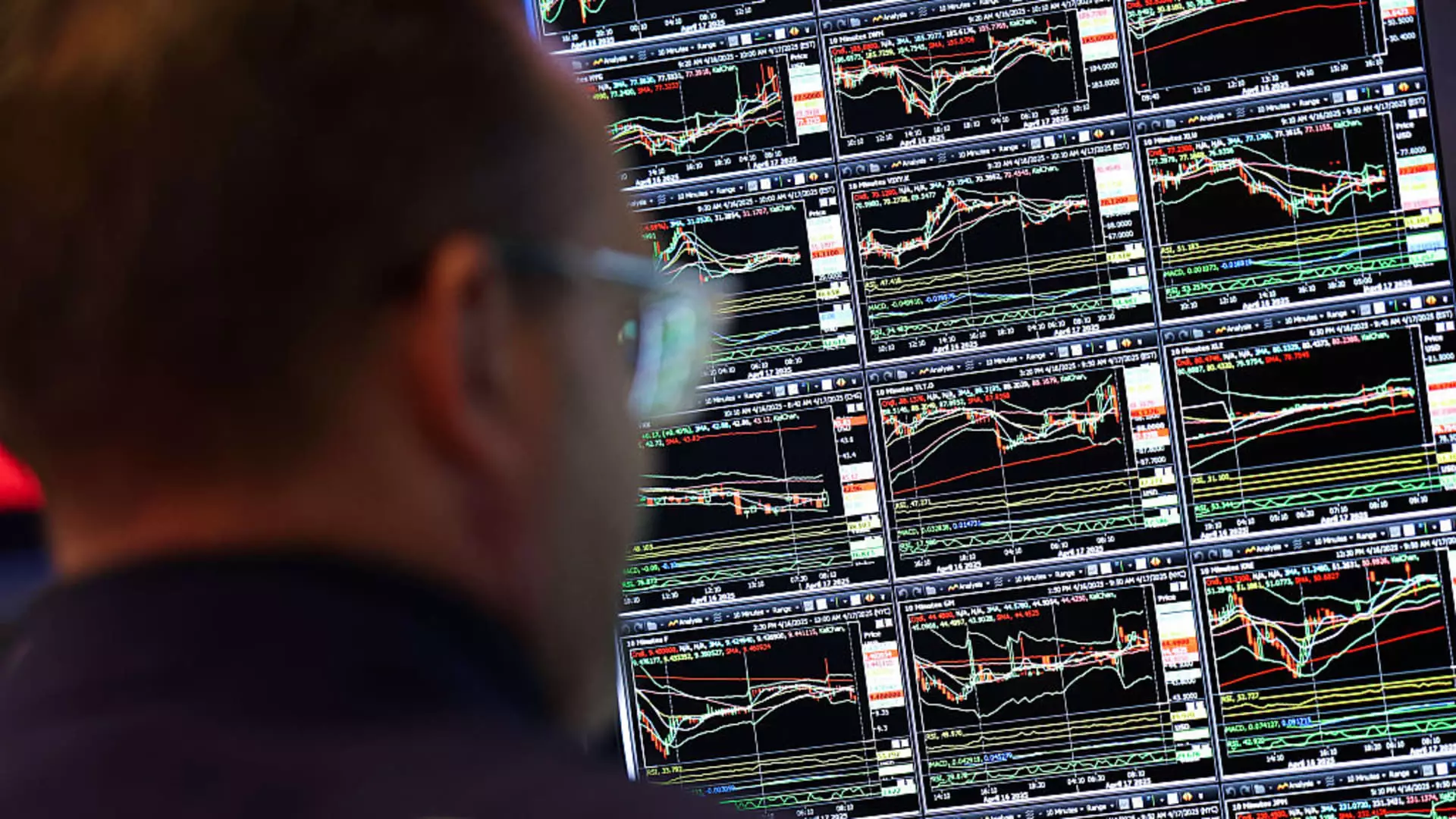In the shadows of a tumultuous geopolitical landscape, there emerges a glimmer of hope for Chinese internet tech stocks. Analysts from Bernstein, led by Robin Zhu, are adamant that the current climate resembles the bleak days of the pandemic era, yet they see potential for growth. Their assessments deserve a deeper investigation, as they suggest that the principles of “fading sentiment extremes” are still viable. While one may argue whether we should glean optimism from the past, the reality is that the psychological aspects of investing play a pivotal role.
In their April 14 report, Bernstein’s team claims to identify conditions reminiscent of previous market bottoms. They highlight that current valuation multiples align closely with lows observed during the challenging period from 2021 to 2023. But it’s critical to question whether this comparison holds water. Are we repeating mistakes from prior cycles, or is this an instance of genuine rebirth? Despite the weight of tighter government regulations and the haunting memories of the Shanghai lockdown, the report shows a degree of optimism.
Government Stimulus: A Double-Edged Sword
A crucial element in the discourse surrounding China’s internet sector is Beijing’s recent pivot towards stimulus announcements, indicating a newfound support for private enterprises. It’s a strategic maneuver that may invigorate the market, particularly with groundbreaking advancements like DeepSeek’s artificial intelligence innovation leading the charge. However, the narrative is not fully rosy. Government interventions often lead to unintended consequences; while they could potentially revive stalwart companies, they might simultaneously instigate dependence on administrative support rather than encouraging genuine market competition.
The Hang Seng Index’s recent breaking of a four-year rut offers tantalizing prospects, yet it warrants skepticism. With Beijing attempting to bolster economic stability, we must ask: do companies like Tencent truly thrive here, or do they merely survive amidst a complex regulatory framework? The answer may lie in their performance metrics, but it’s imperative to evaluate the long-term sustainability of such interventions.
Sector Divergence: The Winners and Losers
In reviewing Bernstein’s insights, notable distinctions arise within the tech sector. Video gaming seems insulated from external trade pressures, while the digital advertising space appears to gain from domestic shifts in merchant strategies. For Tencent, which dominates both these spheres, this presents an enticing opportunity. Trading at 13.5 times anticipated earnings for 2026, it remains a prominent focus of Bernstein’s recommendations. Yet, it is vital to juxtapose this optimism with caution: what might happen when the tides turn, and multiple growth engines stall?
Investors should remain vigilant about the broader implications of escalating U.S.-China trade tensions. The repercussions are not confined to regional impacts—this geopolitical strife creates a ripple effect felt throughout global markets. As uncertainty looms regarding potential delistings of major Chinese companies from U.S. exchanges, the volatility in investor sentiment grows. The pressure of avoidance toward U.S.-listed Chinese stocks creates a dichotomy that investors must navigate carefully.
Emerging Trends and Adaptations
Despite the looming geopolitical threats, there are clear indicators of resilience within the Chinese economy. Bernstein notes digital ad revenues skyrocketing, even amid shifting consumer habits. Major players such as Tencent are reconfiguring strategies, channeling investments into advanced AI and advertising technology, ultimately yielding enhanced returns on investment.
China’s recent approval of 362 new games signals a recovery nearing pre-pandemic levels, showcasing another avenue for growth. Amidst regulations aimed at moderating youth screen time, the gaming sector evolves—not entirely unscathed but sufficiently adaptive to weather the storm.
Perhaps the crux of the matter rests upon a deeper examination of how companies will implement these strategies. Are they engrossed in just weathering today’s crises, or are they envisioning adaptability for future challenges? Emerging trends hint at a transformative capacity; aligning with this perspective offers glimpses of hope amid the uncertainty.
A Glimpse of Economic Growth
China reported a gross domestic product (GDP) growth of 5.4% in the first quarter—this figure exceeded projections and stands as a counterpoint to concerns surrounding U.S.-China tensions. Nevertheless, refinement of expectations from economists suggests a more sustainable trajectory that may rest under the official target. The reality of a potential slowdown doesn’t equate to an impending economic catastrophe, nor should it breed recklessness among investors. Rather, it underscores the necessity for shrewd choices in investment.
Companies like Meituan have released forward guidance signaling continued growth in gross transaction values. Bernstein’s analysts have classified it under ‘overweight,’ hinting at potential gains. Such performance indicates that consumer behavior persists amid lasting geopolitical pressures, revealing an underlying resilience that warrants consideration.
Ultimately, while the specifics around Chinese internet tech stocks teeter on the edge of optimism and uncertainty, it is essential that investors approach these markets with a mix of enthusiasm tempered by judicious caution. Understanding the subtle nuances in regulatory shifts, GDP fluctuations, and sector dynamics will become increasingly vital as the landscape unfolds.

